Media
Interview with the Producer of “Fordson: Faith – Fasting – Football”
Published
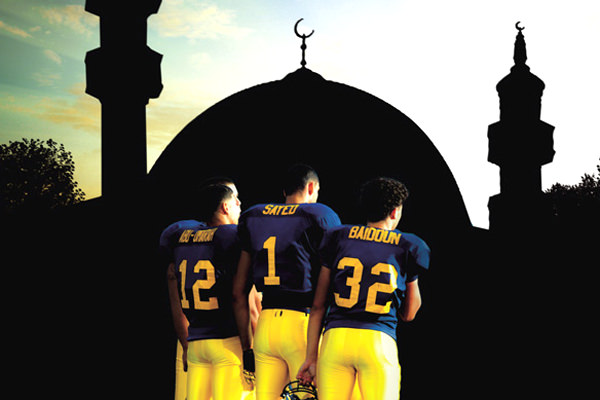
The new documentary, Fordson: Faith – Fasting – Football, is in theaters now through Thursday, September 15th. The film follows a predominately Arab-American high school football team from Dearborn, Michigan as they prepare to face their cross-town rivals while fasting for Ramadan. Far more than a sports flick, Fordson is a story of a Muslim community balancing their Islamic and American identities in a post-9/11 world.
We caught up with Ash-har Quraishi, who produced Fordson along with his wife, Basma, as he geared up for the film’s release.
Keep supporting MuslimMatters for the sake of Allah
Alhamdulillah, we're at over 850 supporters. Help us get to 900 supporters this month. All it takes is a small gift from a reader like you to keep us going, for just $2 / month.
The Prophet (SAW) has taught us the best of deeds are those that done consistently, even if they are small. Click here to support MuslimMatters with a monthly donation of $2 per month. Set it and collect blessings from Allah (swt) for the khayr you're supporting without thinking about it.
***
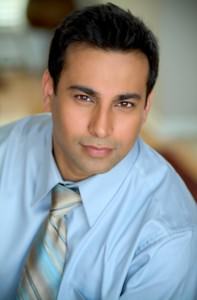
[Ash-har Quraishi]: Two and a half years, but it is finally on the big screen, which is what we have always hoped for.
[YC]: So for our readers who may not know, can you tell us a little bit about the role of a film producer?
[AQ]: Well, the producers are really responsible for making sure everything happens, so they are kind of the glue that keeps the production together. Traditionally, producers will be involved with everything from development to pre-production to finding the production crew that you are going to use. In my case specifically, my wife and I worked on coming up with the look of the film, what format we were going to shoot on, and also determining who we wanted to shoot the film.
Both my wife and I worked at CNN. We both have production backgrounds. I was the production supervisor at CNN before getting into reporting and becoming the bureau chief in Pakistan.
[YC]: What drove you and your wife to this specific aspect of film making?
[AQ]: I picked up my first camera when I was, I think, six years old. I shot my first film when I was six, on a Hi 8 camera that my dad gave me. My love for filming things started at an early age. I started shooting small, short films when I was a teenager with friends, cousins and siblings. Basma was the same way. She used to shoot videos, as well, when she was a child. So we were always drawn to the production aspect of things, knowing how to light things and how to frame things and composition and artistic parts that come together when you are making a film. I always had a love for cinema, generally speaking as well. I wanted to be a film director – a narrative film director, but the closest that I could get to it without scaring my parents too much was broadcast news. I was able to satisfy that desire looking through the viewfinder of the camera and putting things together and editing and shooting and all that.
Basma, who was the other producer on the film, came from a documentary background. We both have long foreign production experience. I supervised the show CNN in Time, which was our magazine unit and kind of CNN’s 90’s version of 60 Minutes, if you will, or Dateline. She then went to work for CNN Presents which is the documentary unit, which produces one hour or two hour documentaries. I pulled her out of that and we did the breaking news for CNN International for three years out of Islamabad. This was her first opportunity to really get back to long form, full documentary length production. She has done a couple of docs as well as a field producer.
[YC]: How did you come to produce this particular film. Were you and Basma actively looking for a project that told the post-9/11 American Muslim story in a compelling and unique way, or did Rashid Ghazi, the film’s director, just make you an offer you couldn’t refuse?
[AQ]: Well you know what it was, Rashid is my brother-in-law – he is married to my sister. Rashid actually was one of the people who encouraged me to get out of pre-med and go into broadcast when I was in college. It was scandalous when we were kids. I remember when Rashid was probably a teenager, there was a rumor going around in the community that Rashid wanted to become a film director, which was, you know, taboo back in the 80s.
If you remember The Message, for example, was protested when it was made and later embraced by the Muslim community. When it first came out in theaters, it was something that wasn’t understood and automatically a lot of people came out from the Muslim community against that film. My dad was talking about it last night about how they organized a group of people to protest the film and then afterwards the ‘alims looked at it and saw what good there was in the film and how well it was done and it was embraced. They changed the name of it because originally it was called The Messenger of Allah and then it became The Message. There has been this sort of perpetual misunderstanding or suspicion about what it means to make films.
We never thought that. We always thought this could be a tool that is used for producing good content. When Rashid came across this story back in 2003/2004, a friend of his, Chris Lawlor, had written an article in USA Today about this great team in Dearborn, Michigan. At the time, Rashid didn’t have anything to do with the film, but he thought he could do it possibly as a live telecast, which is what he does – his business is sports marketing. He puts together these high school games that are broadcast on ESPNU. He had mentioned the project to us because we were looking for a project to work on together for a number of years. I think the first time he had mentioned it to me was back in maybe ‘06/‘07. I said, “Yeah, when it looks like it is coming together, let me know.” I was working full time in Kansas City and said I’d come up, Basma and I would produce it.
[YC]: This film had to overcome a lot of hurdles to get made – not surprising for anyone familiar with the American public school system and high school sports personalities.
[AQ]: The problem was that Michigan state rules don’t allow live telecast of high school games, so he had to come up with a different way to tell the story or to at least get this team some notice. In the ensuing years as Ramadan started sliding more into football season, the spotlight sort of shined on the scene. So there were more articles about it, and he was interested in doing a more in depth version of what we already knew about the team, so he pursued a documentary route. Every year it just didn’t work out with getting the rights to do it and getting the principal and coach on board and the school board on board – it was always a problem.
Finally in 2009 we were getting close, and it was our last chance because it was the last year that Ramadan would fall during football season for 20 years, basically. It was the last chance to do it. He worked really hard to try and get the rights. There was a new coach who had been there for two years. In the last meeting, Rashid and I drove up to Dearborn from Chicago in June, probably, of 2009. We met with the coach and we met with the principal. I did my best to make him (the coach) feel comfortable. The principal said to us, “If the coach signs off, I’m okay with you doing it.” The key was convincing Coach Fouad Zaban that we would handle the story and not be in the way because his main priority was to make sure that his team was able to practice and train without the distraction of cameras following him around for extended periods of time.
That was part of my assurance as a production guy and producer – to assure him that not only would we stay out of the way, but we would also handle the material respectfully and not in the fashion of reality television, really. Basically my credibility is all that I have, in my business, as a journalist and television broadcast journalist. I’m a newsman, and so that was my standpoint. Rashid has got a marketing background, so it’s a different sort of industry he works in. My industry is purely based on credibility. I hope that in our backgrounds he had seen we worked for CNN and I was an investigative reporter … and that we actually had some credibility. He was convinced. Fouad said okay.
Then the school board said no, so Rashid made a last ditch effort. He drove up to Dearborn from Iowa where he was for an event. He went to each school board member to find out who said no. None of them would own up, so he said, “Well, if nobody said no, then I think that means yes.” They said okay, and we busted my head to get the production together in ten days, which is a massive undertaking for a project of this scale.
We ran out, and both of us started scouting locations, interviewing potential subjects who would be the main focus of the doc – the potential players. We got that all lined up. We figured out who we were shooting with and started rolling tape on September 10th – I believe it was – 2009. Not only was it the last time that Ramadan was going to fall in football season, it was just sort of that the stars were aligned for us, alhamdulillah. The last ten days of Ramadan happened to be during our production shoot. We started the film on September 11, 2009, which was a Friday night and that was a big game for Fordson, and we followed them … as they are fasting and training and going through the last ten days of Ramadan up to their Friday night game against their cross-town rival. This was the biggest game of the year for them with their cross-town rivals the Dearborn Pioneers and then Eid was the following weekend, so it was like everything lined up for us. Had we done it earlier, all of these things would not have happened in the way that they did. Had we gotten the rights in 2004/2005, it would have been a different film, I think. My explanation is that it was meant to happen when it happened.
[YC]: You mentioned not wanting to tarnish your credibility as a journalist and chase after the sensational. Yet, there is quite a bit of naturally occurring drama in Dearborn, given the area’s ethnic and religious character. Seeing as how not all Arabs are Muslim and not all Muslims are Sunni, does the film address at all Dearborn’s intra-communal tensions?
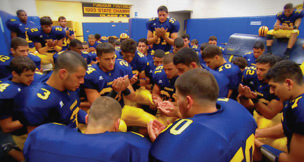
Our goal was to really go after the common qualities we all share as Americans – as human beings, really. Yes, some of our characters are Shi’a, and some of our characters are Sunni, but what we focused on was what made them similar. You wouldn’t be able to tell, and I would say it is a nondenominational film. It is about Muslims in general. It is about Arab Americans. It’s about Americans. I think it really is a positive and inspirational story that instead of focusing on divisiveness focuses on commonalities.
[YC]: These days any project even tangentially related to Islam and Muslims is often viewed with skepticism if not outright suspicion.
[AQ]: Absolutely. The fact of the matter is that if you do anything that focuses on Islam, you are going to encounter controversy and encounter people who don’t like what you are saying. If you look at the 2008 presidential election, the idea that Barack Obama was a Muslim was made an issue and was politicized. The idea of being associated with Islam in any way is a negative thing is something that has been politicized in the last couple of years. The Park51 mosque controversy obviously opened up a lot of what is really going on in America today.
If you think about it, in my estimation, in the last three of four years it seems like while it’s not good to be Islamophobic, it is okay and alright. It is much more acceptable to be Islamophobic because you can justify why you are Islamophobic. I think with the distance from 9/11, it has become worse because right after 9/11 there were certain isolated incidents regarding Islam and Muslims, but I think that there was a concerted effort to highlight the fact that the people who perpetrated the terrorist acts of 9/11 were a very narrow, radical, extreme element and not at all carrying the sentiments of all Muslims. That message sort of has dissipated quite a bit. It feels like in the last couple of years Islamophobia has come out as more acceptable. That is another reason why it is so important that the film come out now rather than four or five years ago when things weren’t as bad and people weren’t protesting and picketing the construction of mosques around the country as they are now.
[YC]: Was the film’s release period, which straddles the ten-year commemoration of the September 11th attacks, a conscious decision to face potential critics head on?
[AQ]: I think that eventually became a part of the strategy, but I don’t think that was originally the intent because we did shoot it in 2009. All of us have full time jobs, so working after eight o’clock at night until two or three o’clock in the morning, you only get so much done. It took some time for us. We released it as early as we could, given the circumstances.
It just so happened that it is the 10th anniversary of September 11th, and we can’t shy away from it. These are issues that everybody is thinking about and everybody is talking about. We think that this is a story that had we focused on the negative things and all of the sort of discourse that is negative about what is happening in America and not told the story that was inspirational and about Americans, then we would have maybe shied away from a 9/11 anniversary release. I don’t think that that is what this film is about. I think that this film will be very inspiring. Because of the message of the film, I think that also sort of tempered our concerns as to how it could be received being released so close to the September 11th anniversary.
[YC]: Scanning the press that the movie has gotten leading up to its release, I have to say on balance it’s been quite positive.
[AQ]: Very positive! Rashid even did Fox News. Alhamdulillah we have been really fortunate. And I think that is just a testament to what we had intended to do and what we were able to accomplish.
[YC]: So what’s next for Quraishi Productions, the film company you run alongside your wife?
[AQ]: That is a good question. We have a whole bunch of potential ideas. Now that we have been through the process once, we are looking back. There are a lot of stories that we wanted to tell or told in some fashion, for example, when we were working in Pakistan when my wife and I were both there – she was producing and I was recording. There were a lot of stories that we told for a CNN audience in two or three minutes but they could have made feature-length documentaries. So we are exploring a couple of those ideas. There is one idea I don’t want to say yet that we are seriously considering starting production on a specific documentary.
[YC]: If you had one bit of advice to give a budding filmmaker, what would it be?
[AQ]: I would say the biggest thing is to look for stories that have some appeal to the masses and have a message. It is one thing to just produce a film. It is a big commitment, so if you don’t believe in the project and if you are doing it just for a paycheck or whatever, that’s just not going to make for fulfilling or compelling film making.
The reason we did this project – I mean, we weren’t paid for this project – we agreed to put our time into it and then if insha’Allah it does make some money, then we’ll deal with that later. This was a passion project, and when we shot for eleven days, we knew that this was a project that was really sort of going to encompass our lives for the next two years. There was a huge commitment on our part. You live, breathe, sleep, and dream about this film, and so I think that the first thing is that you have to be able to commit to a story. I think the most important thing is be true to yourself when you’re picking what story you want to tell.
[YC]: Thank you very much for taking the time to speak with us, Ash-har. We at MuslimMatters all wish you and Basma continued success, insha’Allah.
[AQ]: Not at all. My pleasure. Thank you for talking to us, and we appreciate everything you guys are doing.
Fordson: Faith – Fasting – Football | The Official Trailer (contains music)
[youtube]http://www.youtube.com/watch?v=Jr27a7uQOGA[/youtube]
Keep supporting MuslimMatters for the sake of Allah
Alhamdulillah, we're at over 850 supporters. Help us get to 900 supporters this month. All it takes is a small gift from a reader like you to keep us going, for just $2 / month.
The Prophet (SAW) has taught us the best of deeds are those that done consistently, even if they are small. Click here to support MuslimMatters with a monthly donation of $2 per month. Set it and collect blessings from Allah (swt) for the khayr you're supporting without thinking about it.
Youssef Chouhoud is an assistant professor of political science at Christopher Newport University, where he is affiliated with the Reiff Center for Human Rights and Conflict Resolution. Youssef completed his PhD at the Political Science and International Relations program at the University of Southern California as a Provost’s Fellow. His research interests include political attitudes and behavior, survey methodology, and comparative democratization.


Israel Seeks Escalation For Latitude – The Regional “Conflict” Widens

Post-Ramadan Reflections From A Mother Of Littles

[Podcast] Palestine in Our Hearts: Eid al-Fitr 1445 AH

Foreign Affairs Official Resigns Over Gaza Genocide

A Ramadan Quran Journal: A MuslimMatters Series – [Juz 30] Solace For The Sincere And Vulnerable

IOK Ramadan: 7 Qualities of Highly Effective Believers | Keys To The Divine Compass [Ep18]

IOK Ramadan: Choose Wisely | Keys To The Divine Compass [Ep15]

IOK Ramadan: Making Time for Allāh at Night | Keys To The Divine Compass [Ep21]

IOK Ramadan: Appreciating the Prophet ﷺ | Keys To The Divine Compass [Ep22]

IOK Ramadan: They Were Not Created Without Purpose | Keys To The Divine Compass [Ep23]

IOK Ramadan: The Importance of Spiritual Purification | Keys To The Divine Compass [Ep30]

IOK Ramadan: The Power of Prayer | Keys To The Divine Compass [Ep29]

IOK Ramadan: The Weight of the Qur’an | Keys To The Divine Compass [Ep28]

IOK Ramadan: Families of Faith | Keys To The Divine Compass [Ep27]

IOK Ramadan: Humility in Front of the Messenger | Keys To The Divine Compass [Ep26]
Trending
-
#Islam3 weeks ago
IOK Ramadan: 7 Qualities of Highly Effective Believers | Keys To The Divine Compass [Ep18]
-
#Islam3 weeks ago
IOK Ramadan: Choose Wisely | Keys To The Divine Compass [Ep15]
-
#Islam3 weeks ago
IOK Ramadan: Making Time for Allāh at Night | Keys To The Divine Compass [Ep21]
-
#Islam3 weeks ago
IOK Ramadan: They Were Not Created Without Purpose | Keys To The Divine Compass [Ep23]


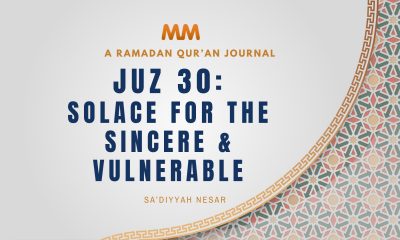
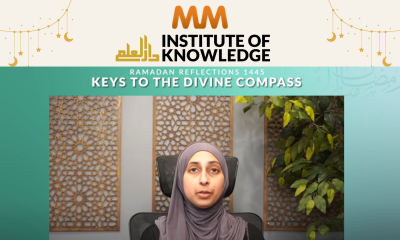

Umm Sulaim
September 12, 2011 at 12:59 PM
As the film is not about belief systems, a focus on humanity was proper.
We often forget humanity is one quality that makes us human: I, frequently, say there is no point in insisting on associating as Muslims if one overlooks ones human nature and adopts the behaviour of animals, or worse.
Even when one disagrees with other people’s beliefs, one still has to relate with them as neighbours, colleagues, and in this case, team mates.
And good going to Rashid for getting on fox; good he wasn’t lynched!
Umm Sulaim
Christiana
September 12, 2011 at 7:19 PM
Umm…
Perhaps one of the messages of this movie had to do with the extreme negative impact of hate speech, name calling, false statements about anyone (my religion uses the word ” LIES”). I listened to the Fox interview itself and found the interviewer to be a positive, respectful person, never interrupting Quraishai yet asking him great questions. I do not know the name of the interviewer, or if she is a person of faith, but I commend her for choosing the moral “higher road”
*Comment edited to comply to MM Comment Policy*
Youssef Chouhoud
September 13, 2011 at 5:57 AM
Yeah, I had to ask the question about tensions, since there were several news stories on their presence in the Dearborn area, but I’m glad Ash-har et. al. chose to feature the positive, unrepresented side of this tale.
Yasmin
September 12, 2011 at 2:31 PM
Mashallah, it is amazing that this dedicated group of Muslims were able to make a movie that shows that Muslims Americans are truly just like other American citizens. I can’t wait to see the movie, Inshallah!
Umm Sulaim
September 12, 2011 at 9:49 PM
When I watch the movie I’ll make that judgment MYSELF.
*Comment edited to comply to MM Comment Policy*
Umm Sulaim
September 15, 2011 at 10:39 AM
I have just watched the trailer; wow AlHamduliLlah it was moving. I shall be on the look out for the DVD.
Umm Sulaim
Halima
September 13, 2011 at 2:49 AM
That’s legit. But did it have to be about one of the most un-interesting sport in the world? :P
Youssef Chouhoud
September 13, 2011 at 5:54 AM
Psht, whatever Halima.
I don’t want the discussion to digress into a comparison (as if there could ever be one!) between manly American Football and sissy soccer (aka “football”), but suffice to say, you are mistaken in your depiction of America’s pastime.
“Un-interesting” – as if!!
:P
Youssef Chouhoud
September 13, 2011 at 6:00 AM
On a personal note, I was a high school football player too (fullback/linebacker for those wondering). I juuuuust missed having Ramadan fall within the season, but I can attest to how difficult it must have been for these athletes.
In fact, it’s probably a lot more difficult that the film let’s on since Ash-har said they started filming once the season began. If, by chance, Ramadan coincided with training camp and two-a-days, then my goodness these guys had it rough. May Allah increase them and preserve them on the right path. Ameen!
Umm Sulaim
September 13, 2011 at 7:43 AM
It is positive that the film focused on how Muslims integrate their schedules into their Religious obligations.
The sport is less of an issue.
Umm Sulaim
Siraaj
September 13, 2011 at 12:02 PM
Grat interview, i remember general pe as a pain in high school during fasting, cant imagine what football practice is like.
Siraaj
marvi
September 13, 2011 at 2:36 PM
Can’t wait to see this documentary inshaAllah, trailer looks really good!
Hena Zuberi
September 14, 2011 at 12:17 AM
Fabulous interview Youssef and Ash-har! I am so proud of Basma, she is my friend from high school, we even worked on our high school newspaper together, the LAST word. Some things never change. I wish her and Ash-har the best of luck in all their endeavors, they are super talented and no- I am not biased. MashaAllah.
I am hoping to take my kids to go see it this weekend, inshaAllah. They loved the scene of the guys praying in the locker room together before the game. Reminds me of the start of our games at the Lahore American School. Our school teams would start the game with a loud ‘Takbeer- Allahu Akbar’ and then Go Team.